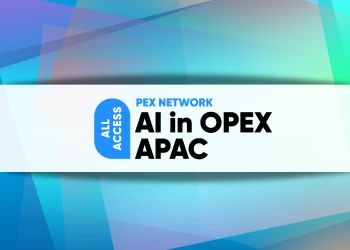Why AI means the end of ‘pure’ RPA
Add bookmarkAntony Walker is a senior iRPA & business process improvement analyst, and Lean Six Sigma Black belt, whose business critical analysis has achieved tens of thousands of pounds in cost avoidance savings, and analysis and intelligence to help secure multi-million pound tenders in the aerospace and engineering sector.
He is head of consultancy firm, Lean IA and author of Business at the speed of bots.
PEX Network:
What is your working definition of 'intelligent automation'?
Antony Walker:
RPA entails dumb computer software doing manual tasks. Intelligent automation is combining things like RPA or BPM tools with a form of artificial intelligence, so it doesn’t just move data through a process, but it can interpret and understand data. Unstructured data is where RPA falls short, and where AI can fill this gap. This is pivotal because 80 to 90 per cent of processes have unstructured data
PEX Network:
What problems can intelligent automation fix?
Antony Walker:
RPA, AI and intelligent automation is regarded in the media as something that could replace people as many businesses have been focusing on FTE savings. However, it should augment what people do; taking the tedious boring tasks so people can focus on more intellectual and creative parts of their life. It also allows businesses and their staff to discover new revenue streams that were once unviable to reach, so that their business can expand.
PEX Network:
What sort of organizations are looking into RPA and intelligent automation, and why are they doing it now?
Antony Walker:
Early adopters of this technology have been finance, insurance, utilities, healthcare and law firms. The manufacturing industry has used physical automation for decades and is also looking at automation on the software side as well. The biggest benefits are within industries that have a lot of paperwork and repetitive tasks, so you can imagine areas like legal, tax and accounting departments having a big appetite for this. Processes that are repetitive and logic-based can be automated, which is why RPA has benefited them greatly.
Over the next year, there will be a lot more focus on AI. In 18 months to two years, I don't see there being any pure RPA initiatives, everything is going to have that intelligence built in. This is because IA is really starting to mature now.
PEX Network:
That is quite a statement. What do you think is driving all this?
Antony Walker:
There have been a lot of advancements in AI. There are a lot of use cases and quick wins for teams to implement AI and benefit from it straight away. And as mentioned previously, only 10 to 20 per cent of processes use structured data. Many business leaders and analysts I’ve spoken to have become frustrated in their previous pure-RPA projects that weren’t providing the ROIs they had expected. That’s why lean IA hits this problem twice. Lean means you use fewer ‘robots’ to get more savings by optimising your processes first, and IA means you can target more processes and move away from just pure-RPA.
PEX Network:
How will these changes affect big legacy banks and financial institutions?
Antony Walker:
Two big stories that have been in the finance technology world for a while now are robo-advisors and cryptocurrency. Independent financial advisors will start to feel squeezed out. They are being challenged by these AI capabilities advising people on how to best invest their money, so IFAs are having to adapt and focus more heavily on the human, customer relationship side. Then we have cryptocurrency which threatens to decentralize the monetary system.
One thing I have seen in the utilities industry are start-up companies in the energy sector that have popped up with very low overheads due to having minimal infrastructure and are able to greatly undercut and move faster than the big corporations. This is definitely something legacy banks may fear happening to them.
Any industry that has a lot of paperwork, manual processes, large workforces and unnecessarily complicated or dated processes in their back office operations will feel the pinch as they hemorrhage money and customers. In asset management the baby boomers still prefer using paper forms, I've been working on a project where we used intelligent cognitive-recognition software to scan information from a paper form and then put this directly into the database, which saved staff having to read the document and manually typing the information into the database manually a thousand times. Note that we are now at a time where computers can read handwriting more accurately than humans.
These are just a few of the things behind the scenes that AI and intelligent automation is impacting.
PEX Network:
If this technology really is maturing and becoming more ubiquitous, what will be the big difference that we'll notice?
Antony Walker:
How we interact with the banks and insurance will be a big one. Natural Language Processing will advance, and is where I am personally starting to focus. Website chat bots will become a lot smoother and smarter; they will understand what we're after and understand what our profile looks like; they have our data, so they will be able to customize what their recommendations are to our specific needs.
For example, in insurance situations - like a car accident - when we use our phones to make a claim, bots will be able to read and respond to our moods, understand the images in photos we send, and know where we are and remember our history to tailor their advice
In summary, customization, speed and accuracy of service through more convenient avenues are how we'll notice these technology advancements over the next few years.
Read the book, Business at the speed of bots.





























